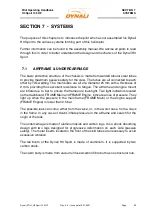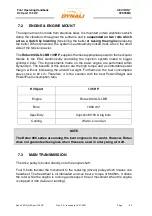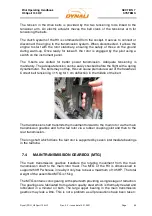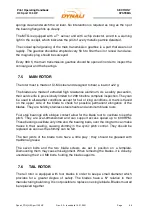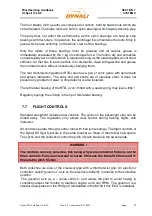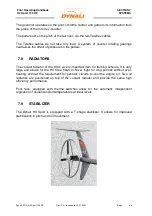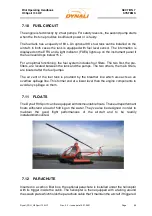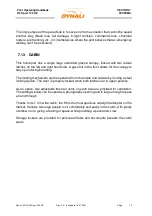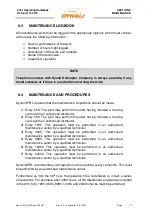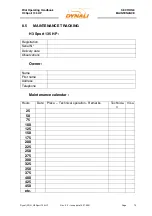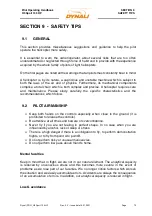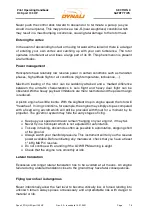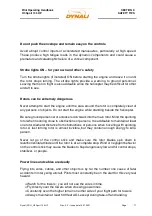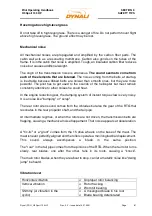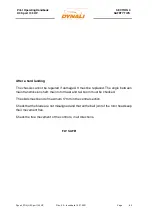
Pilot Operating Handbook
H3 Sport 135 HP
SECTION 9
SAFETY TIPS
Dynali_POH_H3 Sport 135 HP Rev. 3.3 – Issue date 15.01.2021 Page
76
Never push the control stick forward to descend or to terminate a pull-up (as you
would in an airplane). This may produce a low-G (near weightless) condition which
may result in a mast bumping occurrence, causing fatal damage to the rotor mast.
Entering the vortex
In the event of descending too fast or moving forward with a tail wind, there is a danger
of entering your own vortex and catching up with your own turbulence. The rotor
operates in turbulent air and loses a large part of its lift. This phenomenon is present
at all altitudes.
Power management
Helicopters have relatively low reserve power in certain conditions such as transition
phases, high altitude flight or air conditions (high temperature, turbulence,…).
Maximum loading of the rotor can be suddenly attained and a marked difference
between the aircraft’s characteristics in solo flight and heavy dual flight can be
observed. With a heavy payload, limitations are more restricted and the power margin
is reduced.
A piston engine has little inertia. With the slightest drop in engine speed the rotor will
“freewheel”. In icing conditions, for example, the engine may simply stop as compared
with a fixed wing aircraft which will still be provided with thrust for a moment by its
propeller. The governor system may hide the early stages of icing.
Ø
Keep up your speed and never remain “hanging on your engine”, it may fail.
Ø
Never fly in a helicopter which is not adjusted for autorotation.
Ø
To keep in training, descend as often as possible in autorotation, stopping short
of the ground.
Ø
Always watch your manifold pressure. This instrument will tell you the reserve
power available. Before initiating any manœuver, check that you have at least
1" inHg MAP in reserve.
Ø
Do not continue with a landing if the LOW RPM warning is alight.
Ø
Check that the engine runs smoothly at idle.
Lateral translation
Excessive and longer lateral translation has to be avoided at all means. An engine
failure during a lateral translation close to the ground may have fatal consequences.
Flying low on fuel is dangerous
Never intentionally allow the fuel level to become critically low. A forced landing into
unknown terrain always poses unnecessary and unpredictable risk with danger to
material or life.
Содержание H3 Sport 135 HP
Страница 85: ......


